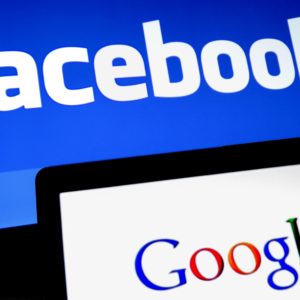When European Union commissioner Věra Jourová meets with Silicon Valley companies, she says, “Hello, welcome, how will you fix the world you have spoiled?”
They always think she’s joking.
“I say no, I mean it seriously, you’re creating problems, so you have to be part of the solution,” she said at a tech event hosted by the Brookings Institution on April 11.
Despite all the problems she believes Big Tech has created or exacerbated, Jourová told event attendees the U.S. should not break up Big Tech companies.
Drawing on her experience growing up behind the Iron Curtain in then-Czechoslovakia (now the Czech Republic), Jourová said the U.S. should develop a people-centric privacy law to grant them full control of their data and online identities.
Her comments are a direct response to 2020 presidential candidate Sen. Elizabeth Warren’s (D-Mass.) proposal to break up Big Tech companies like Amazon, Facebook and Google, should she win the presidency.
“Our role (as government) is to set the rules which will minimize or eliminate the risks from the people in this business. I cannot imagine breaking up or abolishing — I’m not a fan of even banning something,” Jourová told POLITICO after the event.
Still, Jourová thinks the U.S. needs to rein in Big Tech, big time.
“A totalitarian regime means the individual has no value. Totally abandoned. You are nobody. You don’t have proper rights. And suddenly all I saw in the networks and the platforms was a very similar environment for the people,” she told POLITICO.
In her opening remarks, Jourová chided the U.S. for not moving faster on a privacy law, although Bloomberg Law reported Saturday that Jourová met with U.S. senators who “more or less” finished a comprehensive, federal privacy law draft, but have not yet released it.
“It is time to shift up the gear and become a global rule maker rather than wait on the sidelines and become a rule taker,” Jourová said at the Brookings event.
Jourová said the U.S. should follow a “people-centric” approach to privacy, i.e., allow American citizens to treat their personal data as their property, a contentious principle among privacy advocates and experts. But most importantly, she said, a federal U.S. privacy law should align with American values.
“Modern Europe, like the U.S. has been built on a solid foundation of democracy, freedom, fairness and the rule of law,” she explained. “Digital or not, this should not matter. Technology is a means to an end, not an end itself. It must serve the people. Yet many of the tech champions are labeled as the disruptors, sometimes disregarding those core values. The only long term solution I see is for a democratic society is to re-assert control of this process.”
That’s why GDPR exists, she said, and that’s why the EU believes that “what is illegal offline must be illegal online,” hence the strict hate speech laws in the EU.
She even criticized Americans’ commitment to the First Amendment and Americans’ insistence on allowing virtually “unlimited free expression” online, partly because of the EU’s history of dealing with the Holocaust, the Armenian genocide and the Soviet Union.
“You can risk to keep it unlimited,” she said, “[but] the EU bears horrible scars of the demons we now see again, I can relate to you horrible statistics of anti-semitism and many other things we simply had to reflect in legislation.”
Jourová also noted tech companies’ tendency to hide behind Section 230 of the Communications Decency Act (CDA), which protects them from liability for what users post or link to on their platforms, thus allowing tech platforms to avoid responsibility for possibly harmful content on their platforms.
But as Zuckerberg’s op-ed for The Washington Post revealed, tech companies are distancing themselves from the old Section 230 argument, and Jourová said now it’s up to U.S. lawmakers and regulators to hold tech companies accountable.
“While I was in Silicon Valley last year I spoke to people from Big Tech, and there is a shift — at the beginning of our talks I still heard the opinion, ‘We have nothing to do with the content, we have nothing to do with the dirt that flows through the pipes,'” she said. “What I hear now is, ‘We feel responsible for the content, we don’t like it, we grabbed too much power and responsibility, we see the world is getting into some very dangerous misbalance. And if you can, take some of the power back.’ This is what I hear from the tech sector. And they hope we will do it in a smart way.”
Finally, Jourová warned the U.S. should not be “lax” when drafting and enforcing privacy laws.
“[There is a] camp that has a lax approach to privacy, that prioritizes uninhibited and uncontrolled access to data in the name of business or government interests,” she said. “I want the U.S. to join [the EU] in the first camp … a camp that shares the view that all players including government should accept limitations when it comes to processing data and be transparent. It is time to work together. I believe this is the right moment to build a global coalition. This could create a strong transatlantic regulatory floor that could answer burning questions about 5G, China, or the power-hungry tech giants. We should not aspire to become the next episode of the Black Mirror TV show.”

